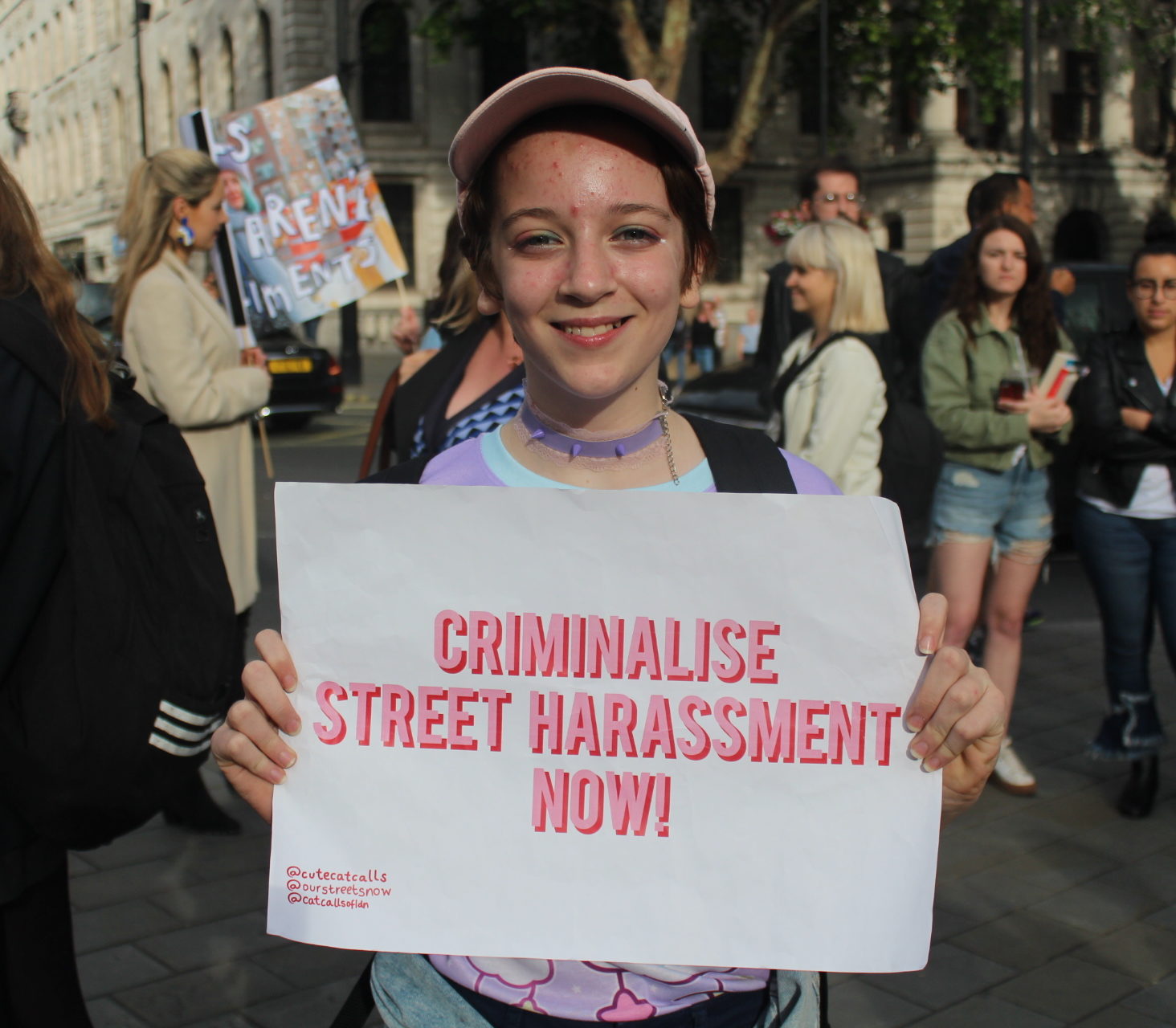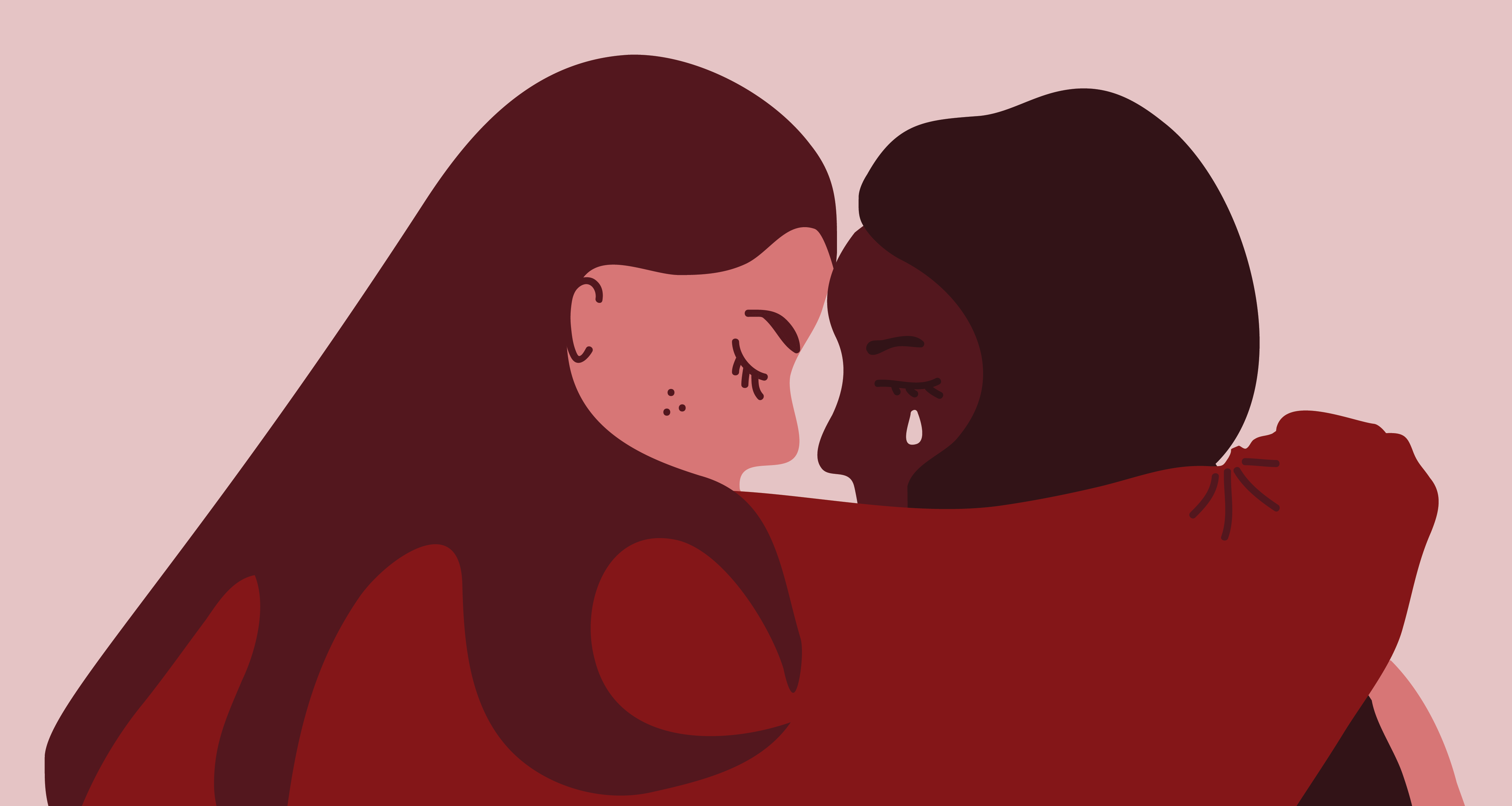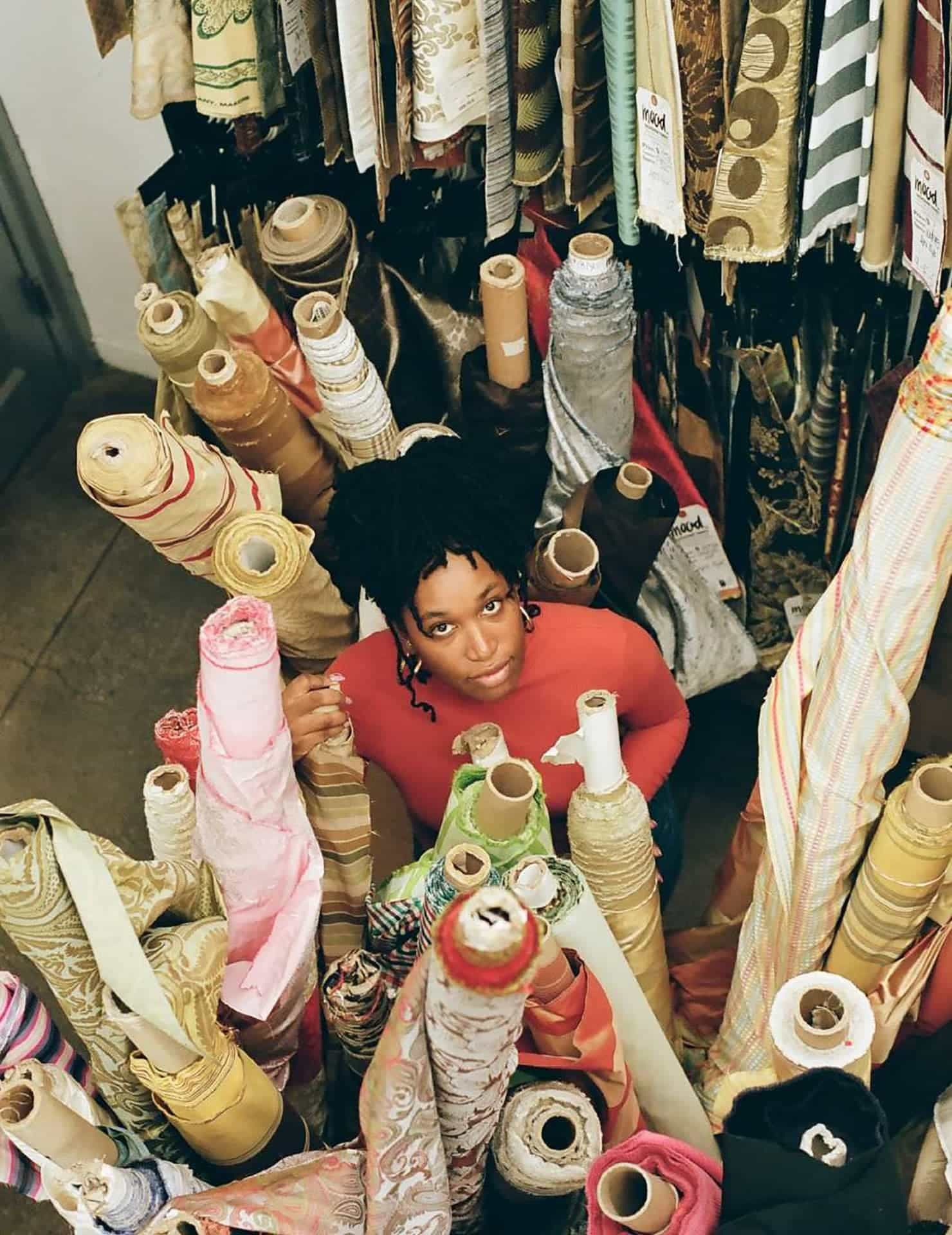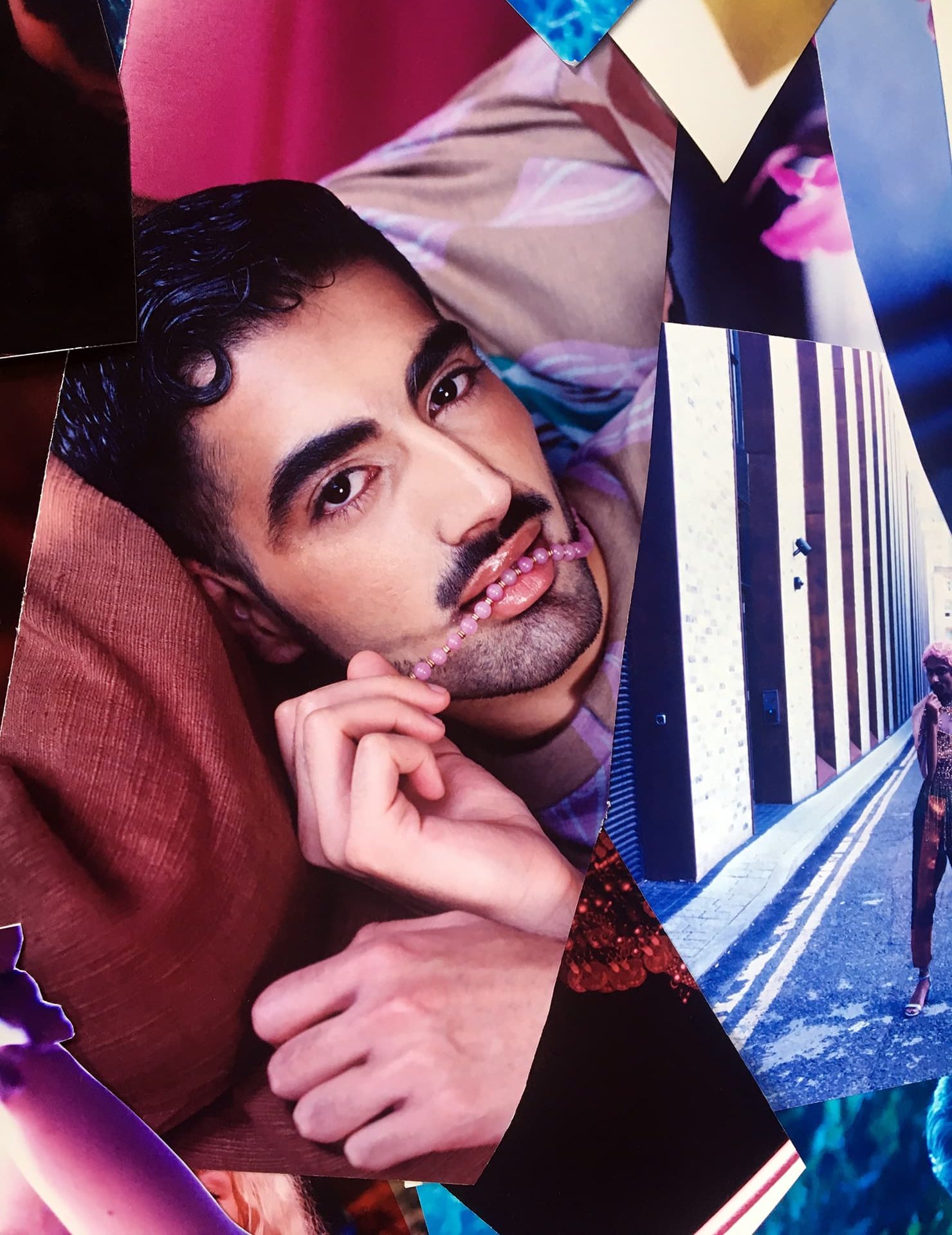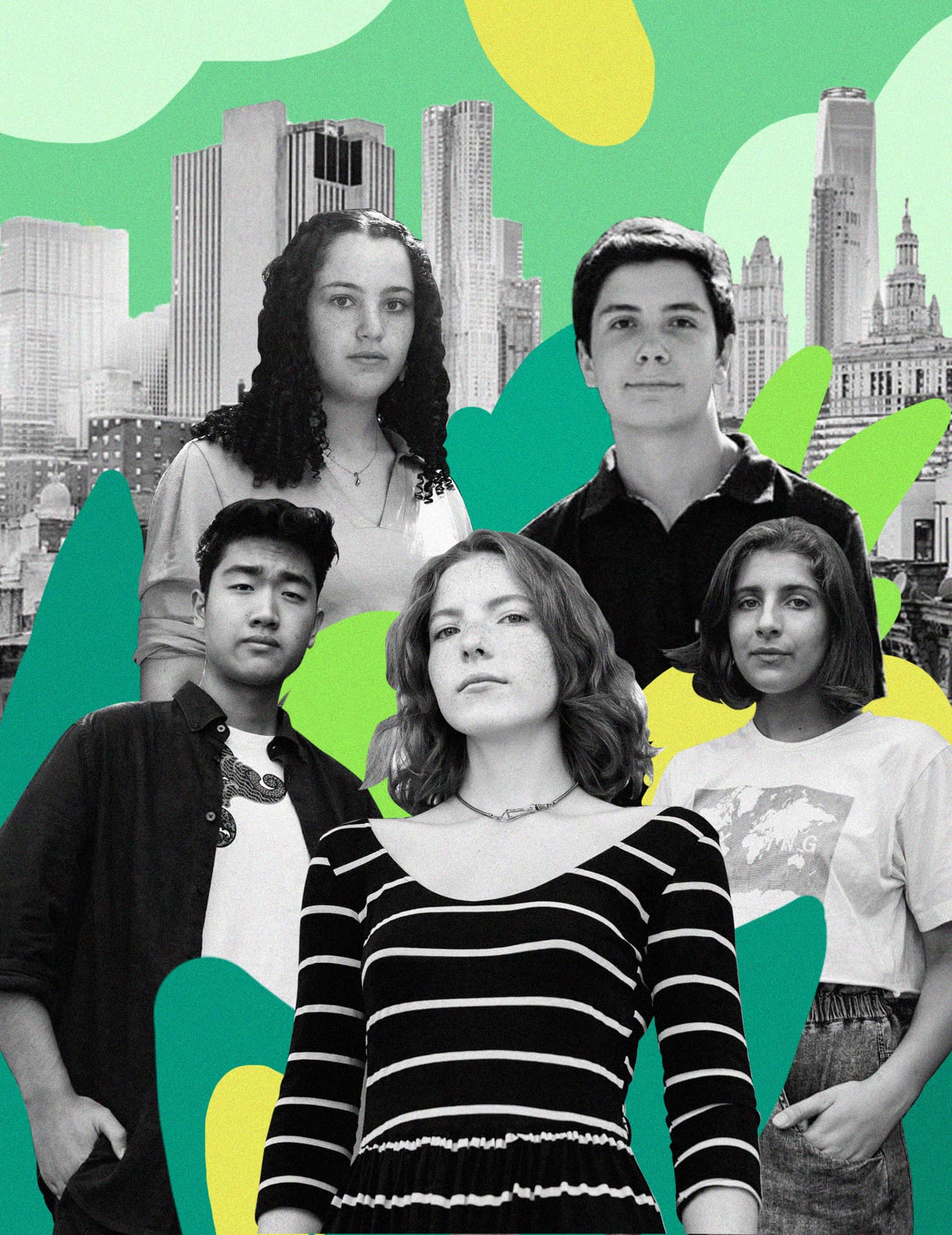Before we continue, let me introduce myself properly. My name is Maya Tutton and I’m a 20-year-old student. Less than a year ago, I founded Our Streets Now with my little sister Gemma who’s 15, and together we’re calling on the UK government to make street harassment illegal. Both victims of street harassment, we felt that the best way to channel our feelings of frustration at the trivialisation and normalisation of street harassment in young women’s lives was through an empowering campaign to challenge it. We founded our organisation because we believe something can, and must, be done about this problem.
Our Instagram, Our Streets Now, raises awareness about street harassment and focuses specifically on how different forms of oppression intersect with this sexist violence. We also platform victims’ stories and have illustrators use their art to bring these experiences to light. Our platform is designed to be inclusive, safe and, most importantly, affirming for victims of street harassment. This is our message: your experience is valid, and your emotions are too.
Now that you know who I am, let’s turn to the lessons that you taught me during our IWeigh takeover.
‘I do not feel free’
The most common response we had was fear. Hundreds of women and girls told us about the anxiety and paranoia they feel when in public, especially when walking to and from school. In the UK, most students wear school uniforms and these have become increasingly fetishized. Rather than a symbol of childhood, uniforms have been sexualised to the extent that 2/3 of schoolgirls have faced street harassment in this country.
It’s not just on the street that women and girls face this harassment. It happens in shops, on the subway or while on a night out. It’s all the time. This constant worry weighs on us heavily and can have especially bad effects for those with pre-existing mental health problems. As one person put it, “I already have anxiety and street harassment kicks it into high gear.” Living with anxiety is difficult. It’s a daily struggle that street harassment only makes harder. Several people told us stories about street harassment provoking panic attacks, extreme paranoia and a general state of anxiety when in a public space. Another follower shared that they have several PTSDs and that street harassment is a constant reminder of past dangers. The overall picture is clear: street harassment makes us feel afraid, angry and anxious.
‘It makes me question my self-worth’
Street harassment is objectifying. Ultimately, our bodies are being perceived as a ‘thing’ that doesn’t deserve respect while in public space. Many victims told us that street harassment makes them not only question, but also hate their bodies. One follower said, “I used to own my body and love my breasts but now I do everything possible to hide them as a precaution.” Often this harassment takes place at a very young age, and girls are made to feel ‘wrong’ or ‘dirty’. This guilt, shame and self-consciousness is carried by many into their adult lives. People suffering from body dysmorphia and eating disorders also told us how street harassment is counterproductive to recovery because ‘it makes me more aware of my body’.
Another experience that’s really important to highlight here, which is often more violent and vicious, is that of ‘fat-calling’. As Instagram activist @yrfatfriend put it, “harassment of fat people is so much more than sexual, and deeply different from the harassment faced by thinner people.” It’s rooted in a sense of entitlement and thin privilege which makes fat-shaming street harassment especially nasty. We’re told again and again to love our bodies, but getting shouted at and sexualised by strangers on the street makes this hugely difficult. Our self-worth is questioned every time we step out of our front door, and it hurts.
‘I stopped wearing skirts’
After researching the behavioural impacts of street harassment, Cornell University and Hollaback! found that when we’re harassed, we tend to change our clothing, take different routes, avoid certain areas, change the time we leave events or avoid socialising altogether. We’ve heard all of these stories before, and I’ve certainly done all those things. Changing the way we dress is the most common – not wearing what we want to, covering up, fearing the consequences of a certain dress. One person admitted, “I actively make clothing choices that hide my body shape.”
Another common behaviour is to take a different way home. It might be a taxi (with a much bigger financial burden), instead of walking. It might be leaving early while it’s still light outside. It might even be not going out at all for fear of not getting home safely. Our day-to-day activities are also changed. One woman told us, ‘I don’t go running outside anymore’ and another said that walking her dog has become difficult because of the street harassment she faces.
I know that most of this article is bleak. To be honest, I found writing it difficult. Some of the testimonies reflected my own experiences; others did not. Layers of privilege are key here – I have never experienced ‘fat-calling’ as a straight-size woman, I can’t speak to the transphobic street harassment that others face or the racial harassment that often intersects with the sexist kind. Erasure often happens when we speak in general terms, and it is essential when talking about street harassment to foreground not just one experience or one kind of body. What is clear though, throughout all of the stories that we’ve shared, is that street harassment is hurting us. The consequences are real and tangible. Our health is being damaged, our freedom limited and our lives impaired.
So change is needed, and we need your help. Join us in our fight. Sign the petition, follow our Instagram and Twitter and tell us about your experience. Let’s make our movement so loud that those in power simply cannot ignore us.
